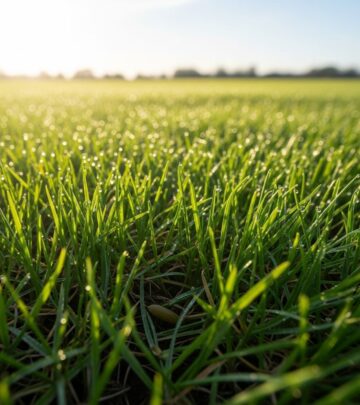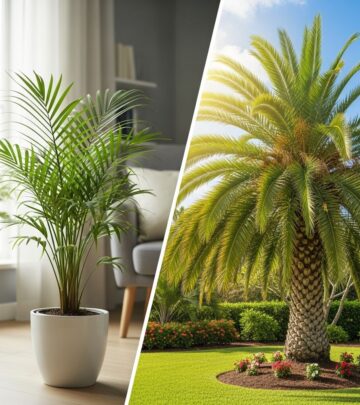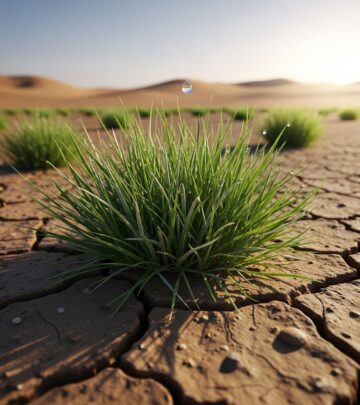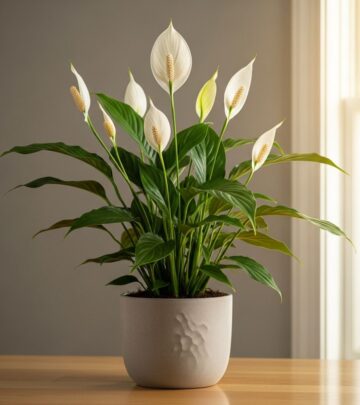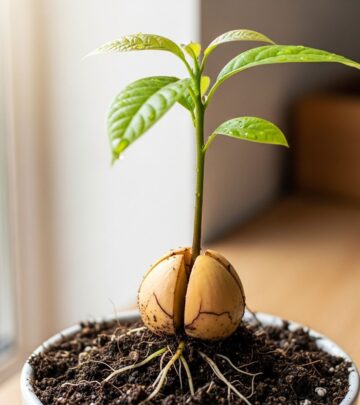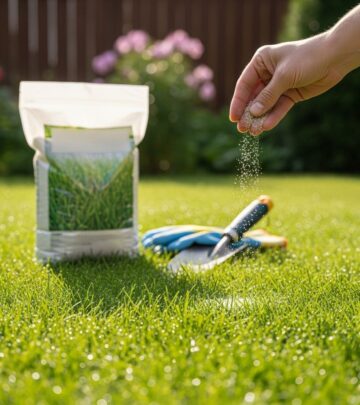Majesty Palm Watering Guide: Essential Tips For Healthy Growth
Maintain consistent moisture and proper drainage for lush fronds year-round.
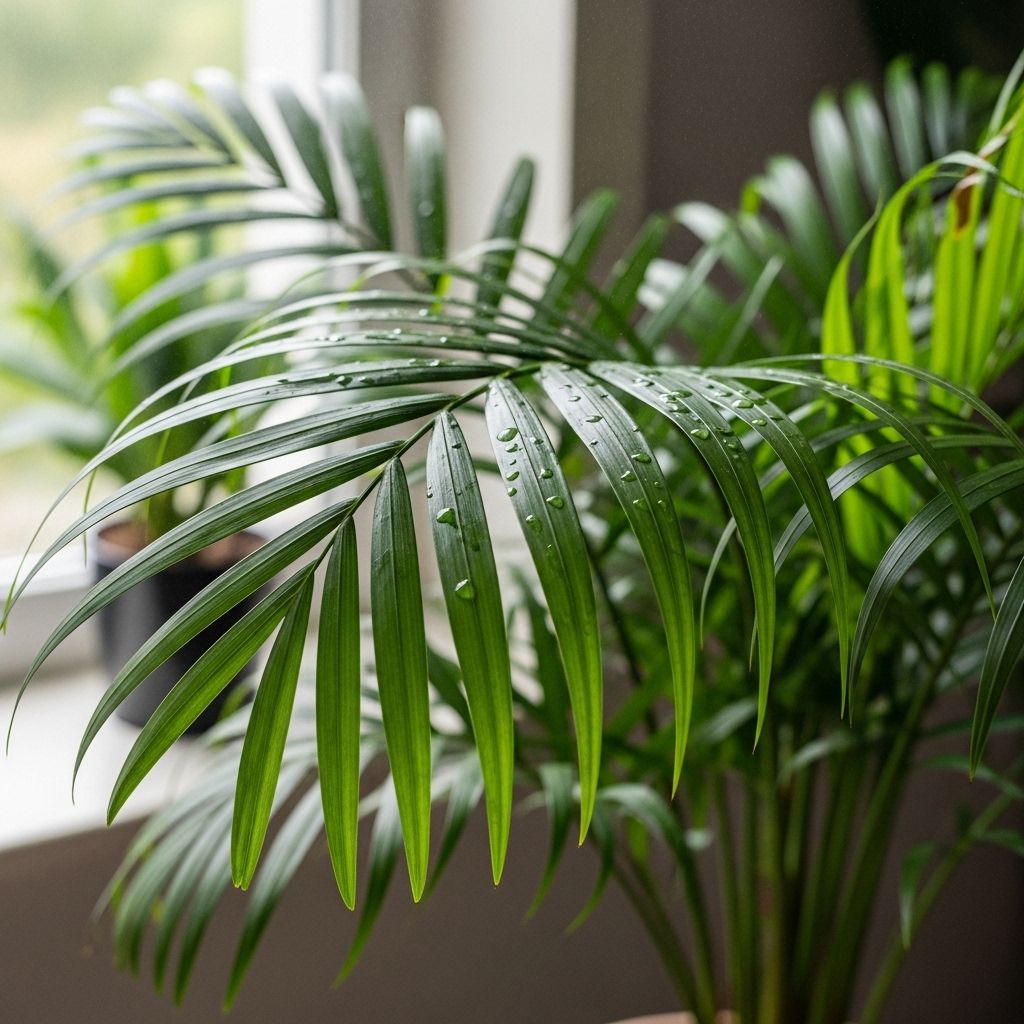
Majesty Palm Watering Guide: How Much, How Often, and Best Practices
The majesty palm (Ravenea rivularis) is a favorite among houseplant enthusiasts for its graceful fronds and ability to bring tropical flair indoors. However, understanding how often to water your majesty palm and how much moisture it requires is key for a healthy, thriving plant. This comprehensive guide explores the watering needs of majesty palms, including seasonal adjustments, best techniques, and answers to the most common questions.
Contents
- How Often Should You Water a Majesty Palm?
- Factors Impacting Watering Frequency
- Step-by-Step Watering Instructions
- Signs of Overwatering and Underwatering
- Best Type of Water for Majesty Palms
- Drainage and Potting Considerations
- Seasonal Watering Adjustments
- Humidity and Its Effect on Watering
- Common Watering Mistakes
- Frequently Asked Questions
How Often Should You Water a Majesty Palm?
The optimal watering frequency for majesty palms depends primarily on local environmental conditions rather than a fixed calendar schedule. In general, most majesty palms need:
- Watering once every few days during active growth seasons (spring and summer), typically every 5–7 days indoors.
- Less frequent watering in fall and winter, around once every 10–14 days or when the soil feels dry at the top inch.
Instead of sticking to a rigid schedule, always check soil moisture first. Majesty palms prefer soil that’s consistently damp but not soggy. Allow the top 1–2 inches of soil to dry before watering again.
Factors Impacting Watering Frequency
Several key factors determine how often your majesty palm requires water:
- Temperature: Higher temperatures increase evaporation and water use, resulting in more frequent watering needs.
- Humidity: Dry air (from heating or air conditioning) causes faster soil drying and greater water demand.
- Light exposure: Bright, indirect light boosts growth and water uptake. Less light slows growth, reducing watering needs.
- Pot size and material: Small pots and porous containers (like clay) dry out faster than large pots or plastic/ceramic ones.
- Soil composition: Well-draining mixes lose moisture quickly compared to dense, loamy soils.
- Season: Growth rates and water needs decline in cooler months, so the palm should be watered less in autumn and winter.
Step-by-Step Watering Instructions
Follow these steps each time you water your majesty palm for healthy root development and lush foliage:
- Test soil moisture by sticking your finger or a moisture meter 1–2 inches into the soil. If the soil feels dry at this depth, it’s time to water.
- Use room-temperature water to avoid shocking roots.
- Pour water evenly around the base until excess water starts to drain from the pot’s bottom hole. This ensures the root ball is well-soaked.
- Empty the drainage tray after 10–15 minutes to prevent roots from sitting in standing water, which can lead to rot.
- If environmental conditions are particularly dry, mist the palm’s fronds a few times a week to boost humidity and leaf health.
Signs of Overwatering and Underwatering
| Symptom | Possible Cause | Recommended Action |
|---|---|---|
| Yellowing, wilting leaves | Overwatering or soggy soil | Reduce frequency, improve drainage |
| Drooping, dry, brittle fronds | Underwatering or completely dry soil | Increase watering, check soil regularly |
| Brown leaf tips | Low humidity or inconsistent watering | Mist regularly, stabilize watering |
| Mushy stems, foul odor | Root rot from waterlogged soil | Repot in fresh, well-draining soil and cut away affected roots |
Best Type of Water for Majesty Palms
Majesty palms are sensitive to salt and harsh chemicals found in tap water. For the healthiest foliage and root development, use:
- Filtered or distilled water when possible
- Rainwater is ideal, if available
- If you must use tap water, let it sit out overnight to reduce chlorine and allow it to reach room temperature
Avoid softened water, which contains sodium and can harm palms over time.
Drainage and Potting Considerations
Proper drainage is crucial; standing water quickly leads to root rot. Ensure that:
- The pot has at least one drainage hole at the bottom.
- You use a well-draining soil mix, such as 2 parts peat moss/coco coir, 1 part perlite, and 1 part sand or fine bark.
- A layer of small stones or pebbles (1–3 inches) at the pot’s base further enhances drainage.
Seasonal Watering Adjustments
Majesty palms require different amounts of water throughout the year. Follow these seasonal adjustments for best results:
- Spring and Summer (Active Growth): Water thoroughly as soon as the top inch of soil feels dry. May require watering once every 5–7 days indoors due to faster growth and evaporation.
- Fall and Winter (Dormant Period): Growth slows, so water only when the top 1–2 inches feel dry; often every 10–14 days. Avoid letting the root ball dry out completely.
Humidity and Its Effect on Watering
Majesty palms are naturally found in humid, subtropical regions and thrive best with high humidity levels (40–60% or higher). In dry indoor environments—especially during winter with indoor heating—palms lose moisture from their leaves faster and need more frequent misting and monitoring. Tips to boost humidity:
- Mist fronds regularly with distilled or filtered water
- Place a pebble tray with water beneath the pot (without touching the pot’s base to the water)
- Use a room humidifier in particularly dry spaces
- Group your majesty palm with other houseplants to create a microclimate
Common Watering Mistakes
- Watering on a fixed schedule regardless of soil moisture leads to frequent overwatering or underwatering. Always check soil first.
- Letting water pool in the saucer can suffocate roots—always empty the tray 10–15 minutes after watering.
- Neglecting humidity in dry homes results in brown leaf tips and crispy foliage.
- Failing to adjust watering for season causes root stress due to too much or too little water.
- Using poor quality water can slowly introduce harmful salts and chemicals to the plant.
Frequently Asked Questions (FAQs)
How can I tell if my majesty palm needs water?
Stick your finger about 1–2 inches into the soil. If it feels dry at this depth, it’s time to water. If moist, wait another day or two and check again.
How much water should I give my majesty palm each time?
Water until excess flows out the drainage hole, thoroughly soaking the root ball but never leaving the plant standing in water. The exact amount depends on pot size, but most indoor palms require 16–32 ounces (470–950 ml) per watering for a typical houseplant-sized pot.
How do I avoid root rot in my majesty palm?
Ensure your pot drains freely, use a well-draining potting mix, and empty excess water from saucers promptly. Never water if the soil is still moist deep down.
Can I use tap water for my majesty palm?
Yes, if necessary, but filtered, distilled, or rainwater is preferred. If using tap, allow it to sit overnight so chlorine dissipates. Avoid softened water.
Should I mist my majesty palm’s leaves?
Yes. Misting helps mimic natural humidity, especially in dry indoor conditions, and keeps leaves healthy and free of brown tips. Mist with filtered water a few times per week.
What’s the best potting mix for a majesty palm?
A blend of peat moss or coco coir, perlite, and sand or bark. The goal is light, aerated soil that drains well but holds some moisture.
Related Tips: Caring for Tall Indoor Palms
- Keep the palm between 65–75°F (18–24°C). Avoid cold drafts or sudden temperature changes.
- Maintain bright, indirect light for robust growth. East or south-facing windows with filtered sunlight work well.
- Fertilize lightly, only during growing season, with palm-specific fertilizer. Avoid overfeeding, as salt buildup harms roots.
Quick Recap: Majesty Palm Watering Essentials
- Check soil moisture frequently—water when top 1–2 inches are dry
- Water thoroughly, but never let palms sit in water
- Adjust frequency for temperature, humidity, and season
- Use only pots with drainage holes and well-draining soil
With careful attention to your majesty palm’s watering and humidity needs, you’ll enjoy a stunning, healthy palm that graces your indoor garden year after year.
References
- https://houseplantresourcecenter.com/2020/10/how-and-when-to-water-your-majesty-palm/
- https://www.epicgardening.com/majesty-palm-watering/
- https://www.nybg.org/planttalk/how-to-keep-your-majesty-palm-looking-majestic/
- https://www.pinterest.com/pin/majesty-palm-tree-watering-schedule-how-much-water-do-they-need–488077678382091520/
- https://www.epicgardening.com/tall-houseplants/
Read full bio of Srija Burman

